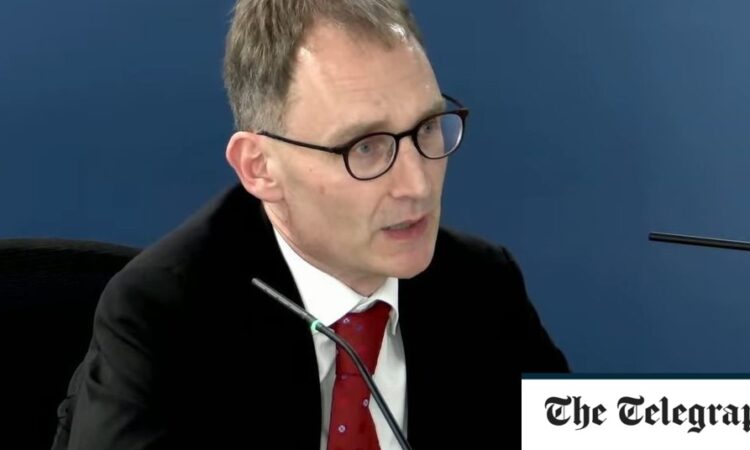
Emails from March, 2020, also revealed that Prof Ferguson was “amazed” that Prof Sir Chris Whitty, the Chief Medical Officer of England, and Sir Patrick Vallance, the then chief scientific adviser, had not appeared to ask health executives if the NHS could cope with a surge in patients from the Government’s then approach to Covid.
Prof Ferguson told the inquiry that scientists should not campaign for specific policies, but “those lines got blurred” during the pandemic.
Asked if he had become “irrevocably involved in determination of policy”, he said that it was a “difficult question to answer” and he became “associated very much with a particular policy”.
“The reality was a lot more complex,” he said. “I don’t think I stepped over that line to say ‘we need to do this now’.”
He said that “none of the models looked at the indirect consequences of interventions”, and were all focused on the NHS and deaths.
UK ‘never had significant chance of preventing infection’
Prof Ferguson added that “globally containment did not work”, and in written evidence said that the UK “never had any significant chance of preventing the infection entering the country” or stopping its spread.
He also said he did not like the phrase “reasonable worst case scenario”, because it made it sound like “it’s an unlikely eventuality” rather than what he viewed as “the most likely eventuality if nothing more is done”.
He said the policy response to the pandemic by NHS England was “fairly catastrophic”, but it was only his job to produce modelling.
The professor added that there was a “Chinese wall” between Sage and emergency meetings in Number 10, and that he and other scientists only found out about preparedness “at the margins of Sage meetings”.
Asked why he did not strongly advise for restrictions earlier, he said he was “very conscious of the huge economic and social costs”, which would mean “long-term and intensive” interventions.
In relation to Prof Riley’s calls for an earlier lockdown, he said he did not want Imperial College to be “seen as almost advocating one policy solution”.
Asked if the first lockdown was necessary, he said he could not “definitively say” whether advice on March 16 to stay at home and cut unnecessary travel, and the announcement of school closures two days later, would have been enough.
“I know there’s a certain sector of society who are exercised about the difference between mandatory and voluntary measures,” he said.
“What we can say is that mandatory lockdown is more effective at reducing the contact rate to even higher effectiveness.”
‘I apologise again’
He was also asked about his own breach of lockdown rules to meet a married woman, and admitted it undermined messaging.
“I apologised then and I apologise again. I think that and later incidents certainly didn’t help with public trust… I still recognise the consequences of those actions,” he said.
Addressing meetings of Sage, he said that the risk to care homes was discussed as early as February 2020 and that the advisory group “shaped policy to a greater extent than optimal”.
Sage was never given “red lines” in the first year of the pandemic and was “never asked to evaluate what policies would lead to minimum use of economically and socially disruptive” interventions.
The inquiry continues.






